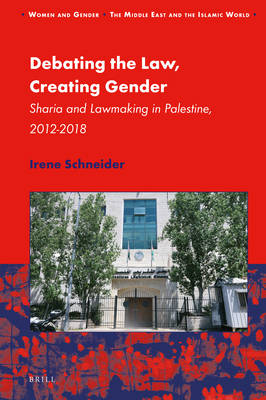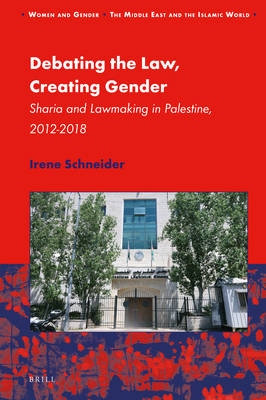
- Afhalen na 1 uur in een winkel met voorraad
- Gratis thuislevering in België vanaf € 30
- Ruim aanbod met 7 miljoen producten
- Afhalen na 1 uur in een winkel met voorraad
- Gratis thuislevering in België vanaf € 30
- Ruim aanbod met 7 miljoen producten
€ 233,95
+ 467 punten
Omschrijving
In Palestine, family law is a controversial topic publicly debated by representatives of the state, Sharia establishment, and civil society. Yet to date no such law exists. This book endeavors to determine why by focusing on the conceptualization of gender and analyzing "law in the making" and the shifts in debates (2012-2018). In 2012, a ruling on khulʿ-divorce was issued by the Sharia Court and was well received by civil society, but when the debate shifted in 2018 to how to "harmonize" international law with Islamic standards, the process came to a standstill. These developments and the various power relations cannot be properly understood without taking into consideration the terminology used and redefined in these debates.
Specificaties
Betrokkenen
- Auteur(s):
- Uitgeverij:
Inhoud
- Aantal bladzijden:
- 404
- Taal:
- Engels
- Reeks:
- Reeksnummer:
- nr. 18
Eigenschappen
- Productcode (EAN):
- 9789004442306
- Verschijningsdatum:
- 22/10/2020
- Uitvoering:
- Hardcover
- Formaat:
- Genaaid
- Afmetingen:
- 155 mm x 239 mm
- Gewicht:
- 680 g

Alleen bij Standaard Boekhandel
+ 467 punten op je klantenkaart van Standaard Boekhandel
Beoordelingen
We publiceren alleen reviews die voldoen aan de voorwaarden voor reviews. Bekijk onze voorwaarden voor reviews.










